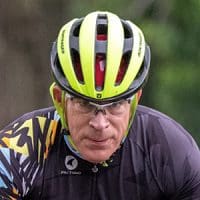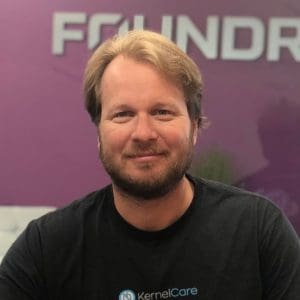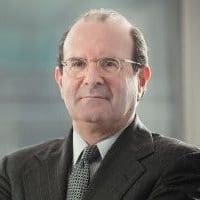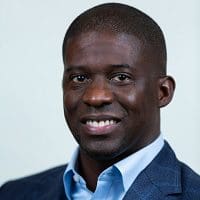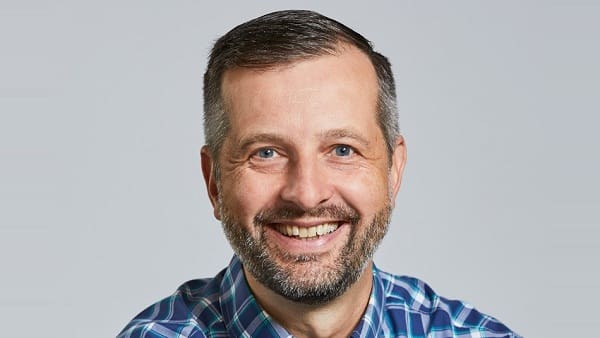
Circ — whose CEO Peter Majeranowski once pledged to make T-shirt recycling “a thing” —has raised $30 million in a Series B funding round led by Bill Gates’ Breakthrough Energy Ventures. Other investors in the round included Inditex, one of the world’s largest fashion retailers; textile manufacturer Milliken & Company; and international investment group Lansdowne Partners, and previous investors 8090 Partners, Alante Capital, Card Sound Capital, Circulate Capital, Envisioning Partners and Marubeni.
“This is a springboard to rapid, large-scale manufacturing success,” Majeranowski said. “With this investment round, we’ve secured suppliers, purchasers and major financial stakeholders. We already have all the clothing we need to make all the clothing we’ll ever need. Now, alongside our partners, we can make recycled garments accessible to every shopper.”
In 2020, the Danville, Va.-based company raised $8 million in a Series A round led by Tin Shed Ventures, outdoor apparel maker Patagonia’s investing unit. Other investors included Marubeni, Card Sound Capital and Alante Capital.
Early in its growth, Circ —which was known as Tyton BioSciences before a strategic turnaround from its initial quest to extract bio fuels and green chemicals from tobacco — received nearly $8 million from an angel round and a grant.
BEV Enlists World’s Biggest and Richest
BEV — founded in 2015 with the goal of lowering emissions to zero by 2050 — has enlisted some of the world’s biggest energy players and richest individuals as investors and board members. They include Amazon founder Jeff Bezos, Indian billionaire Mukesh Ambani, Saudi Prince Alwaleed bin Talal and media mogul Michael Bloomberg.
Over a seven-year period, the venture firm has invested in over 60 startups that pursue varied innovative paths to reduce the global carbon footprint and mitigate climate change. Circ was BEV’s 25th investment this year. Its other portfolio investments this year were: Terra CO2 Technologies, Vantem Global, Sortera Alloys, H2SITE, Electric Hydrogen, Fleetzero, C-Zero, Turntide Technologies, Zap Energy, Mangrove Lithium, Mission Zero, Pachama, Neutral, Source, Brimstone Energy, SparkMeter, Praan, Heirloom, Our Next Energy, Antora Energy, KoBold Metals, Rondo Energy, Verdox and H2Pro.
Pivoting from tobacco to fabrics
Tyton, the older name of Circ, initially focused on converting fibrous stalks left behind by tobacco farming into pulp that could be used to make paper. But a great idea was born when a Swedish company came up with the question: “Can you try putting a t-shirt through your machine?”
Majeranowski, who worked in finance early in his career, figured recycling fabrics presented a far bigger opportunity. It not only would make a dent on halting climate change, but also offered a huge market for recycling technology and to produce recycled fabrics.
Globally, the textiles industry generates carbon dioxide-equivalent emissions of over 1 giga ton per year. It also produces over 100 million tons of fabrics — of which 17 million tons go into US landfills alone — and an estimated 100 billion garments each year. Even if Circ could capture a fraction of this market, Majeranowski believed, his decade-old startup would be well on its way to success.
Big tech breakthrough
Commercial Real Estate
MacKenzie Companies
Law
Nemphos Braue
Financial Services / Investment Firms
Chesapeake Corporate Advisors
Commercial Real Estate
Monday Properties
Venture Capital
Blue Delta Capital Partners
Internet / Technology
Foxtrot Media
Since 2013, Majeranowski and his team have adapted their hydrothermal technology — use of water, heat and “responsible chemicals” — to solve a critical problem standing in the way of potential recycling of fabrics: separating cotton and polyester, which are blended together in most of the world’s fabrics. Older technologies could separate and recycle one or the other material, but not both.
Circ has come up with technology that separates both cotton and polyester, recovering nearly 90% of the original fibers. This allows the recycled material to be remade into new fibers for use in new garments. So much so, Majeranowski believes if Circ’s technology can be scaled upat cost-effective levels, the world would never need to grow or produce new garment fibers — creating the perfect circular economy.
Majeranowski received a bachelors degree in Applied Economics from Cornell University and an MBA from Duke University.He initially worked at Windmill International, a US based investment company focused on financing early-stage projects and companies in new members of the EU and NATO. For six years, he also served as a US naval officer, working in Iraq and the Middle East.

